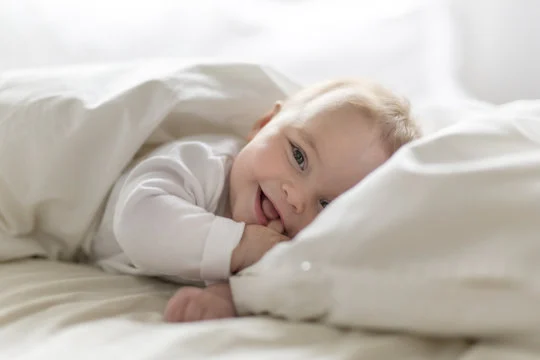My little one, once a tiny bundle of joy who cried and cooed and reached for me with his chubby hands and toothless smile, is now 3 and a half years old. It’s a specific age, one that demands precision in its description, especially when the days seem to fly by and he learns so much so quickly.
At this age, I remember feeling like a whole person, aware of my emotions and the world around me. Yet, my little Ace insists, “Me no big. Me tiny!” Still, the undeniable milestones are there: he’s mastered potty training, his speech is clear enough for strangers to understand. It’s rare now that I carry him on my back; he has his own space in our bed, sprawling out with his favorite Paw Patrol toy tucked under his arm.
The days of nursing bras and worrying about nursing access are behind me. Although he still seeks cuddles, kisses, and affection, he also drew a picture today — a person with arms, legs, eyes, and even a sword. In that moment, I realized I had transitioned from being a baby mom to a mom of a little boy. In fact, I’m a mom to three boys: ages 7, 5, and 3 and a half.
This shift has been gradual but unmistakable. I once took pride in my role as a certified babywearing educator, helping new moms navigate the world of wraps and slings. I was the one to welcome new parents at their first gatherings, expertly wrapping my baby in intricate carries that showcased my skills. Those early conversations centered on feeding, diapering, and sleepless nights. With my older sons, I gained credibility; I had been through the trenches.
Some of those women became my closest friends, but as Ace’s baby years faded away, I found myself wearing him less and less. My certification became irrelevant, and as Ace grew, I felt a pang of sadness. Our discussions shifted as well, and the strong bonds I formed with my baby mom friends began to wane. We no longer shared the same interests in music, literature, or art.
Suddenly, I was a mother of three boys without a community. The baby section at Target no longer called to me, and I stopped obsessively checking for cloth diaper or baby carrier swaps. I lost many of my Facebook groups, and while I sought connection with other homeschooling moms, I struggled to find my place. I appreciated the friendships I formed, but they felt tenuous; we saw each other less often as our kids grew older.
I used to express my love by helping my friends with household chores, bringing coffee, and sharing those intimate moments of motherhood. I miss that sense of camaraderie. Now, without a baby, I don’t have the immediate connection with other parents at school drop-offs or events. Instead, I find myself reconnecting with old friends, like the fashion photographer and her poet husband or the single dad from college whose son plays with Ace.
I’ve started to put more effort into my appearance — wearing makeup, dressing nicely, and exercising more. My husband and I enjoy date nights, and while I cherish these moments, I can’t shake the feeling of having lost my solid footing in the world.
I used to be in demand; my little one needed me constantly. Now he’s capable of being left with others, of asserting his independence, and of expressing his preferences — whether it’s yelling at the dog or begging to watch his favorite show. I didn’t realize how deeply I craved the feeling of being needed. Now that it’s gone, I find myself with a void that needs to be filled — with friendships, literature, art, music, and those cherished dinner dates.
Filling that void is a challenge. The ease of being needed is gone, and now I must work to create new connections.
For more insights on this journey, check out some resources about pregnancy and home insemination here.
Summary: This article reflects on the bittersweet transition from the baby years to the challenges of raising a toddler and navigating friendships in motherhood. As children grow and independence emerges, the author grapples with the loss of the baby stage and the need to redefine her identity as a mother.
